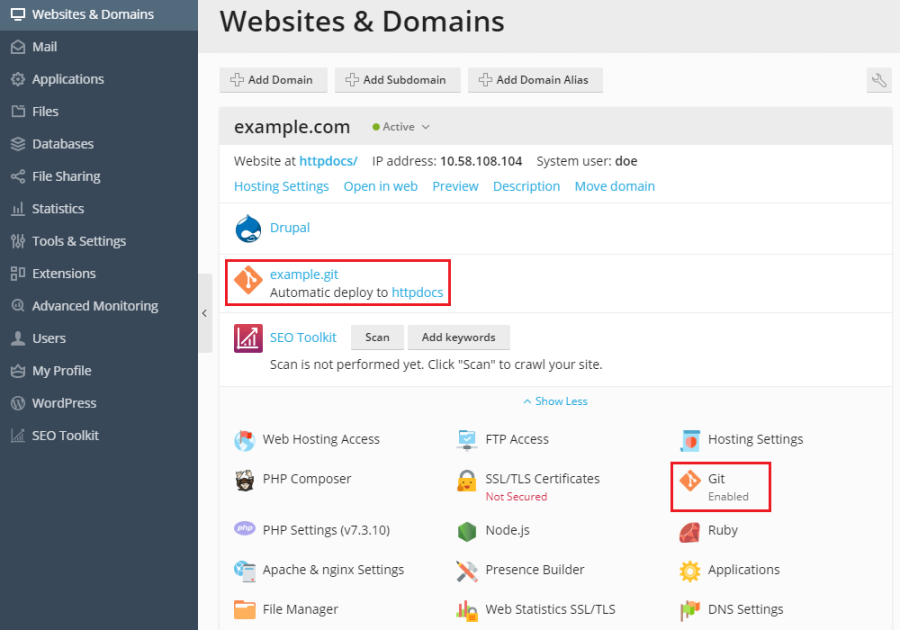Overview
Plesk allows you to integrate with Git – the most popular source code management system used by many web developers. You can manage Git repositories and automatically deploy web sites from such repositories to a target public directory. In other words, you can use Git as a transport for initial publishing and further updates.
Note: This feature is not supported in Plesk installations running on Windows Server 2008.
To work with Git, you need the following:
- The Git extension installed in Plesk.
- A domain should be created in Plesk with a service plan granting the Git management permission.
In Plesk, you can add Git repositories of two types depending on the usage scenario:
- Using a local repository on your workstation. In this case, you send the changes from your local repository to Plesk, and then Plesk deploys the changes to your web site. Refer to Using local repository.
- Using remote Git hosting. This scenario may be useful if you already work with a remote repository in GitHub (github.com) or BitBucket (bitbucket.org). You send the changes to the remote repository, and then Plesk pulls them from the remote repository and deploys them to your web site. Refer to Using remote Git hosting.
When you have Git repositories enabled in your domain, a list of created repositories is displayed on the domain’s page. For each repository, the name, the current branch and the deployment path are displayed. The Deploy button near the repository name allows you to deploy the files from a repository (if manual deployment is configured) and the Pull Updates button allows you to pull the changes from the remote repository.
Note: Currently, Plesk-hosted Git repositories are protected with the FTP user’s password. Anonymous access cannot be used.
The Git link allows you to manage the domain’s Git repositories.


